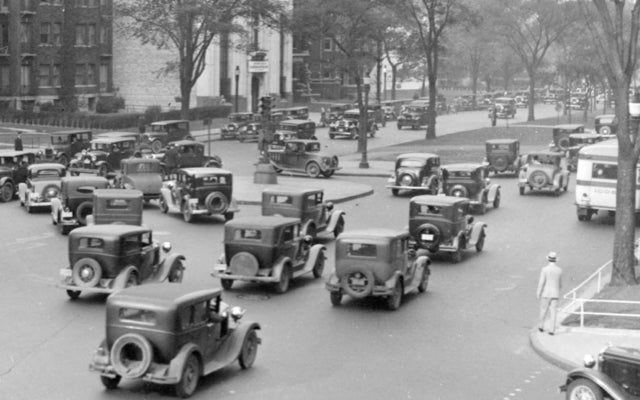
thank you for visiting the labor history resource project as we build this resource!

The Wayne State University Library System, through its digital publishing initiatives, strives to bring unique, important, or institutionally relevant content to Wayne State University’s academic community and to the larger world. Our Digital Collections represent text, images, and audiovisual material that support this mission through a diversity of projects.
The East Side Freedom Library (ESFL) has its home in the former Arlington Hills library, one of St. Paul’s historic Carnegie library buildings at 1105 Greenbrier Street, located in the Payne-Phalen neighborhood.
This site was created by Dr. James Leloudis and Dr. Kathryn Walbert as a part of the American Historical Association’s program Teaching and Learning in the Digital Age, funded by the National Endowment for the Humanities. In building this website, our intent is to make…
In 2018, there were 20 major work stoppages involving 485,000 workers, the U.S. Bureau of Labor Statistics reported today. The number of major work stoppages beginning in 2018 was the highest since 2007 (21 major work stoppages). The number of workers involved was the highest since 1986 (533,000 workers).
Women Have Always Worked: Fighting for Equality: 1950–2018.
An exploration from an online edX course.
Women Have Always Worked: Fighting for Equality: 1950–2018.
An exploration from an online edX course.
On November 23, 1909, more than 20,000 Yiddish-speaking immigrants, mostly young women in their teens and early twenties, launched an eleven-week general strike in New York’s shirtwaist industry. Dubbed the Uprising of the 20,000, it was the largest strike by women to date in American history.
Prelinger Archives was founded in 1983 by Rick Prelinger in New York City. Over the next twenty years, it grew into a collection of over 60,000 “ephemeral” (advertising, educational, industrial, and amateur) films. In 2002, the film collection was acquired by the Library of Congress,…
In 1977, a bill to better enforce the National Labor Relations Act (NLRA) sailed quickly through the House of Representatives. Facing a Senate filibuster, its proponents weakened the proposal—making it, according to historian Jefferson Cowie, “lean, moderate, and basically unchallenging to the corporate order.”
The Westinghouse Works Collection contains 21 actuality films showing various views of Westinghouse companies. Most prominently featured are the Westinghouse Air Brake Company, the Westinghouse Electric and Manufacturing Company, and the Westinghouse Machine Company. The films were intended to showcase the company’s operations. Exterior and…